William McIlvanney: The 'resurrection' of father of Tartan Noir
- Published
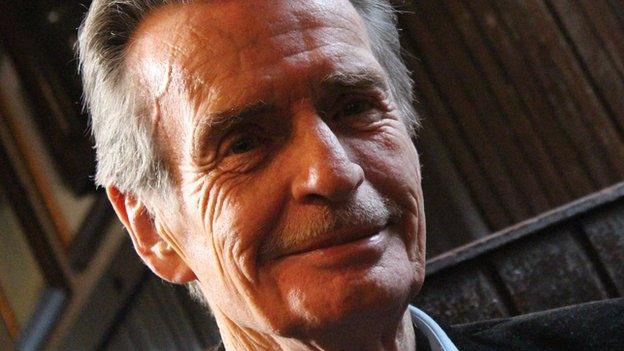
William McIlvanney influenced many of Scotland's top crime winners
William McIlvanney broke the mould of Scottish crime writing but, while the writers he influenced went on to top the bestsellers list, books by "the father of tartan noir" went out of print.
McIlvanney was the most-celebrated Scottish novelist of the 1970s.
His 1975 novel Docherty brought him widespread acclaim and his book about Glasgow detective Laidlaw changed the face of crime fiction.
But while the Scottish crime writers who came after him, such as Ian Rankin and Val McDermid, have sustained long and successful careers, McIlvanney's books disappeared off the shelves.
The 78-year-old author, essayist and poet met Rankin as part of a documentary, which will be shown at the Glasgow Film Festival, external on Monday.
The profile of the Ayrshire author - William McIlvanney: Living with words - will also be shown on BBC Two Scotland on Friday.
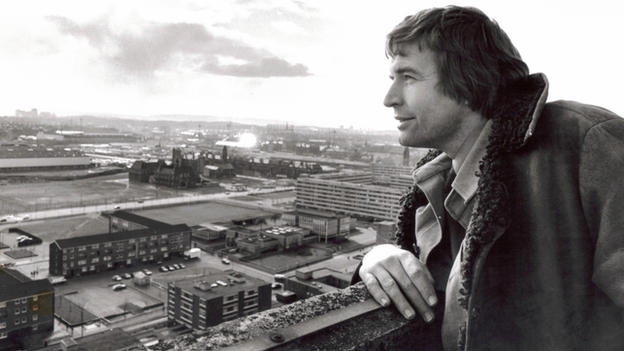
McIlvanney said Glasgow was a great city to write about
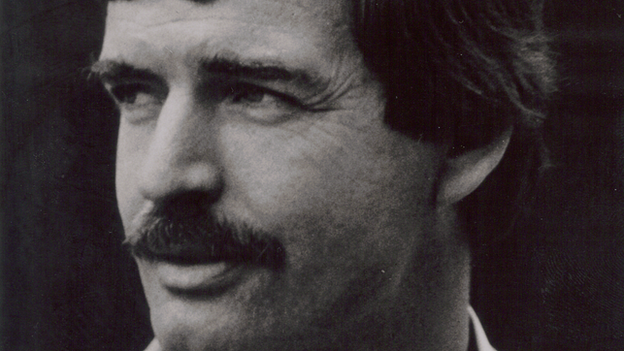
McIllvanney's novel Docherty won the Whitbread Novel Award
In the documentary, Rankin tells McIlvanney how he saw him speak at the Edinburgh Book Festival in 1985 and queued up for the signing afterwards.
Rankin says he told him he was trying to write a crime novel set in Edinburgh.
"Good luck with the Edinburgh Laidlaw," McIlvanney wrote in Rankin's copy of his novel Docherty.
Two years later Rankin released Knots and Crosses, the first Inspector Rebus novel.
'Phony temptation'
Over the next 20 years and 17 novels Rebus became synonymous with a hugely successful genre of crime fiction, often dubbed "Tartan Noir".
In contrast McIlvanney has only written three crime novels in more than 40 years.
He tells Rankin: "When I wrote Laidlaw, the editor said 'if you write one a year you'll be a millionaire'.
"It's not what I do. I just knew I couldn't. It's not the way I work."
McIlvanney adds: "Occasionally at two in the morning I think maybe I should have done that.
"But it's phony temptation. I'm quite happy to try to write what I'm writing. That's it."
McIlvanney was born in Kilmarnock in 1936. His father was an ex-miner and his mother was "an avid reader".
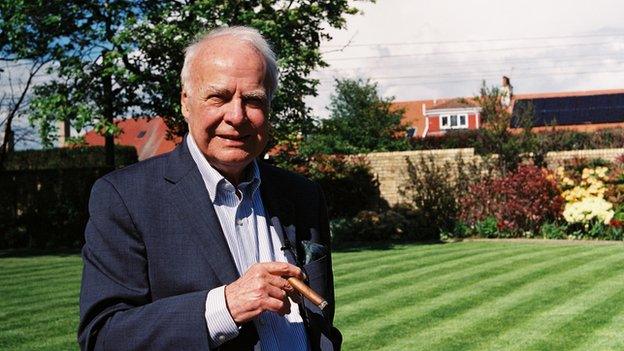
William's brother Hugh is a well known sports writer
His older brother, renowned sports writer Hugh McIlvanney, says William's writing always represented the voice and experience of ordinary folk but also their "great intelligence" and "vivid expression".
"If you were in a pub in Kilmarnock, evidence of intelligence or a capacity to use words properly actually meant more than being hard," says Hugh McIlvanney.
"They had a lot of respect for hard men but they had even more respect for the word."
William McIlvanney went to Glasgow University in 1955 and left in 1959 "transformed" and with a desire to be a writer.
However, he spent most of the next two decades as a teacher at an Ayrshire high school before he pursued writing full-time.
'Great city'
His first novel Remedy is None came out in 1966 but it was Docherty, in 1975, that was his breakthrough.
The novel follows a west of Scotland mining family in the early decades of the 20th century.
McIlvanney was the authentic voice of the Scottish working class, long before Alasdair Gray or James Kelman.
He says: "I remember an old ex-miner shaking my hand and crying and saying 'you've written my story, son'."
In 1977 McIlvanney wrote Laidlaw, a novel that showed an "authentic" Glasgow detective.
"Glasgow is a great city to write about because it is a great city," he says.
"It is terrific to write about because it tells you what it feels.
"Glaswegians don't hang about to tell you, sometimes even when you don't want to hear, they tell you what they think."
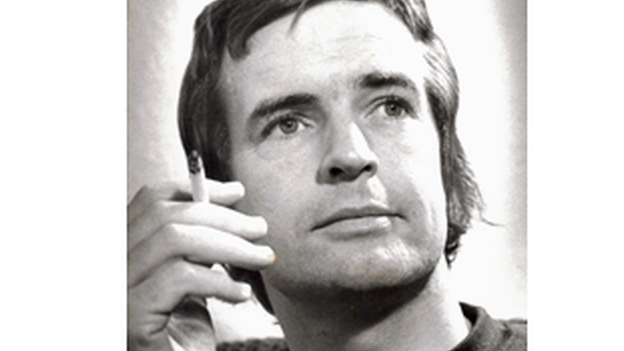
William McIlvanney spent many years as a teacher in Ayrshire
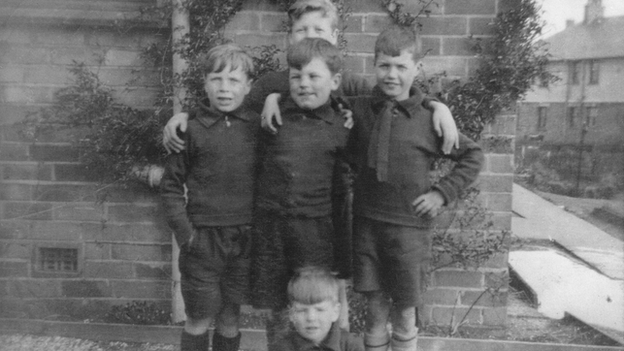
McIlvanney was the youngest of four brothers
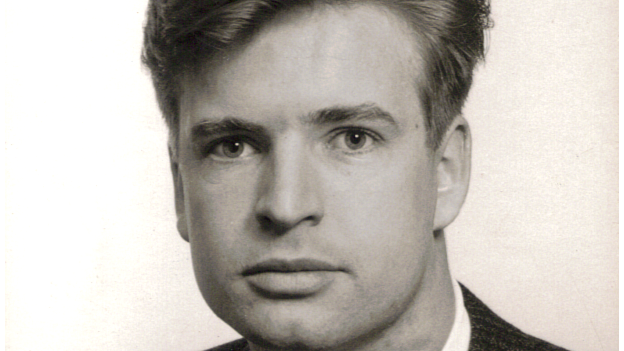
McIlvanney said he was transformed by his time at Glasgow University
McIlvanney got help from police in the city to find out more about how they operated and he was introduced to some "interesting" people in Glasgow's underworld.
Laidlaw was a "real guy" not "the police". The crimes he investigated had an impact on the whole of society. It was a type of crime writing which had not been attempted before in Scotland and its impact and influence have been huge.
But McIlvanney did not cash in on his success. He has only written two other crime novels - The Papers Of Tony Veitch (1983) and Strange Loyalties (1991).
His other successes include The Big Man (1985), which was made into a film starring Liam Neeson and Billy Connolly.
His 1996 novel, The Kiln, followed the story of Tam Docherty, the grandson of the character featured in Docherty.
Pay tribute
There have also been short stories, essays and poems but just a few years ago McIlvanney found that none of his work was still in print.
Since 2013, he has had something of a renaissance.
Canongate has been bringing his books and short stories back into print and the writers he has influenced have been lining up to pay tribute.
McIlvanney says: "It was a resurrection.
"I suppose any kind of interest in me again took me by surprise - but a happy surprise."
Rebus author Rankin tells him: "Without meaning to do it and without knowing you were doing it, while you were out of print you were influencing a whole new generation of Scottish crime writers.
"It's everybody you talk to, whether it's Val McDermid or Denise Mina or Christopher Brookmyre - everybody remembers reading these books and thinking 'if it's ok for Willie to do it, I'll give it a go as well'."